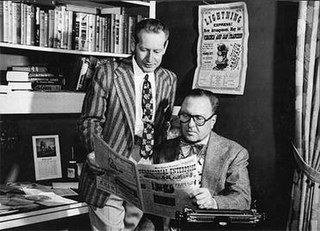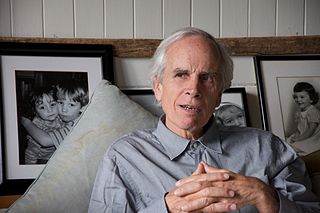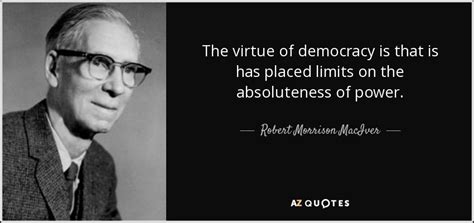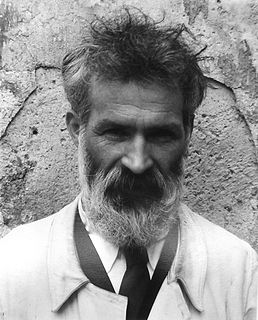A Quote by Hans Arp
All things, and man as well, should be like nature, without measure.
Related Quotes
The Idols of Tribe have their foundation in human nature itself, and in the tribe or race of men. For it is a false assertion that the sense of man is the measure of things. On the contrary, all perceptions as well of the sense as of the mind are according to the measure of the individual and not according to the measure of the universe. And the human understanding is like a false mirror, which, receiving rays irregularly, distorts and discolors the nature of things by mingling its own nature with it.
I admire most of all The Renaissance Man, and if it can be said without pretentiousness, I like to think of myself as one, at least in some small measure. Not a Michelangelo, mark you, but perhaps a poor man's Cellini or a road company Cosimo de' Medici ... the Renaissance Man did a number of things, many of them well, a few beautifully. He was no damned specialist.
Impress upon children the truth that the exercise of the elective franchise is a social duty of as solemn a nature as man can be called to perform; that a man may not innocently trifle with his vote; that every elector is a trustee as well for others as himself and that every measure he supports has an important bearing on the interests of others as well as on his own.
Nature without learning is like a blind man; learning without Nature, like a maimed one; practice without both, incomplete. As in agriculture a good soil is first sought for, then a skilful husbandman, and then good seed; in the same way nature corresponds to the soil, the teacher to the husbandman, precepts and instruction to the seed.
Many churches are measuring the wrong things. We measure things like attendance and giving, but we should be looking at more fundamental things like anger, contempt, honesty, and the degree to which people are under the thumb of their lusts. Those things can be counted, but not as easily as offerings.
The saying of Protagoras is like the views we have mentioned; he said that man is the measure of all things, meaning simply that that which seems to each man assuredly is. If this is so, it follows that the same thing both is and is not, and is bad and good, and that the contents of all other opposite statements are true, because often a particular thing appears beautiful to some and ugly to others, and that which appears to each man is the measure
Successful businesses measure and count things. I think that's a safe assumption on top of which we can drop the following hypothesis: unsuccessful business either measure nothing, the wrong things, too many things, or finally, they measure the right things but they don't communicate the measurements efficiently.
We are apt to think we know what time is because we can measure it, but no sooner do we reflect upon it than that illusion goes. So it appears that the range of the measureable is not the range of the knowable. There are things we can measure, like time, but yet our minds do not grasp their meaning. There are things we cannot measure, like happiness or pain, and yet their meaning is perfectly clear to us.
Large or small, [the garden] should be orderly and rich. It should be well fenced from the outside world. It should by no means imitate either the willfulness or the wildness of nature, but should look like a thing never to be seen except near the house. It should, in fact, look like part of the house.
I like when a man has one strong accessory. If it's a watch, it has to be major. If you have strong shoes, it should just be the shoes. I don't like when a man is overdone-that's just bad taste. Coco Chanel was always saying you have to watch yourself in the mirror, put on a lot of things, and then take them off. I think it should be that way for men as well.
You need not fear me, for I not only should think it wrong to marry a man that was deficient in sense or in principle, but I should never be tempted to do it; for I could not like him, if he were ever so handsome, and ever so charming, in other respects; I should hate him—despise him—pity him—anything but love him. My affections not only ought to be founded on approbation, but they will and must be so: for, without approving, I cannot love. It is needless to say, I ought to be able to respect and honour the man I marry, as well as love him, for I cannot love him without.







































